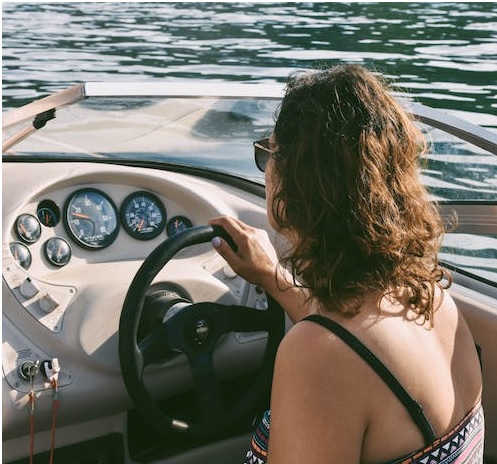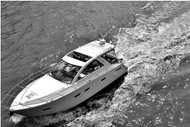4 Things You Should Know About Marine Electrical Wire
4th Oct 2022
Anyone that has a boat had better learn the difference between marine electrical wire and other grades of electrical conductors. Not only are they not the same, but it is also downright risky to use them interchangeably. Here’s what you need to know.
What Is Marine Electrical Wire?
Marine electrical wire, also known as marine grade electrical wire or marine cable, is a special type of highly flexible cable made with a high strand count of individually-tinned copper conductors.
Marine grade wire is made with a high conductor count to keep it extra flexible. This enables it to make the bends and curves necessary to snake through the recesses of a boat’s interior, and also makes it easier to make tight connections.
As for the conductors themselves, they are individually tinned to protect them against the ravages of corrosion, which are bad enough in freshwater environments and extreme in saltwater environments.
1.Do not use automotive-grade battery cable on a boat - marine electrical wire is for that
If you’re ever installing a battery or need to replace the battery cables in your boat, do not use automotive-grade cable in place of marine electrical wire.
One, it may not be flexible enough in the appropriate gauge to make the connections. But more importantly, automotive grade conductors are not treated against corrosion with the same level of intricate thoroughness as marine cables.
Any spots of exposed copper wire - no matter how small - will quickly corrode, and that corrosion will spread like fire underneath the insulation along the wire.
If the cables corrode sufficiently, it can result in issues starting your engine or just leave you dead in the water.
Don’t risk it; never use automotive cables on a boat - only use marine-grade wire and cable.
2. Use marine grade terminals at connections
Marine grade terminals, like marine grade wire, consist of tinned copper lugs. These lugs are designed to be used in a marine environment and possess certain features that like marine wire make them better for use around water.
Marine grade terminals, most importantly, have tinned lugs that resist corrosion. These will last longer; if you use terminals with untinned lugs they will corrode away and you will end up making new connections anyway. Spend a few extra dollars the first time and use the right terminal connections.
Marine grade terminal connections also typically feature closed front lugs that resist the intrusion of water.
It is also important to remember not to rely solely on solder as your only bond between the terminal and the battery. Marine grade terminals are designed to be crimped onto the battery; doing so provides a solid mechanical connection. You can still solder them; but first, crimp, then solder. (This follows the ABYC guideline for making connections, which does not accept soldering as the sole means of making an electrical connection).
3.If using heat shrink tubing, use marine grade heat shrink
Keeping water out of your wiring is vital to the health, safety, and performance of any electrical system. Understandably, there is a greater risk of water intrusion on a boat, and water can both cause corrosion and incapacitate a circuit.
That means the following: if you are going to use heat shrink tubing to cover any exposed areas of electrical conductors, do not use standard heat shrink tubing; use only marine grade heat shrink.
Marine grade heat shrink tubing typically contains a liner made of adhesive which melts and then bonds to the wire when heated. This creates a waterproof (or nearly waterproof) sheath around the wire, helping to prevent water from getting in.
Little steps like this that you take waterproofing your boat’s electrical components today can save you from costly, time-consuming wiring tomorrow.
4.Use the appropriate wire size (consult an electrical engineer, experienced boater, or manufacturer specifications)
It is important to remember that it’s impossible to use wiring that is too big for a circuit, but very easy to use wire that is too light, and that can be very dangerous.
Using wire of a gauge that is too small for a circuit will cause the wire to overheat, which will melt the insulation and which can cause fires - which are dangerous anywhere but disastrous at sea.
It is also important to remember that as the length of the wire increases, the greater the wire gauge you will need to complete a circuit.
However - this is not a suggestion for which wire gauge to use. For specific information, consult manufacturer guidelines or consult an electrical engineer for help wiring your vessel.

Questions About Our Marine Electrical Wire
Do you still have questions about our marine electrical wire? Take a look at our marine-grade electrical wire via the previous link and feel free to get in touch with our customer service department by phone at 800-262-1598 or by email at Sales@EWCSWire.com.

